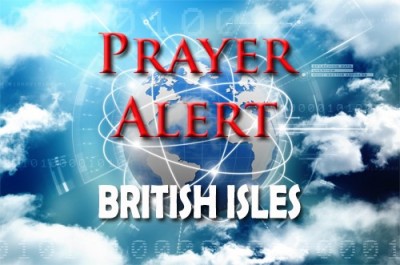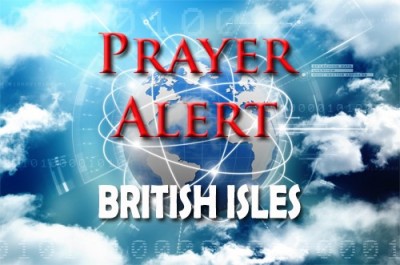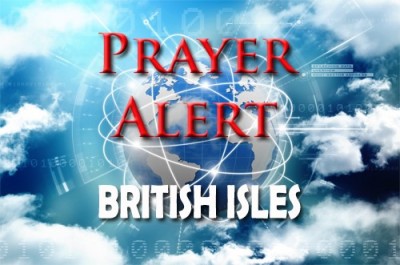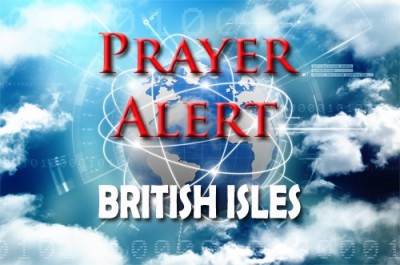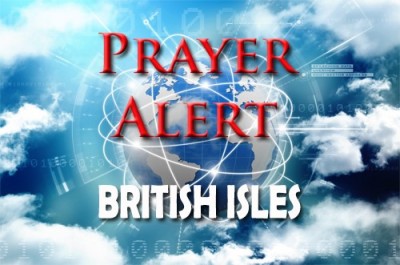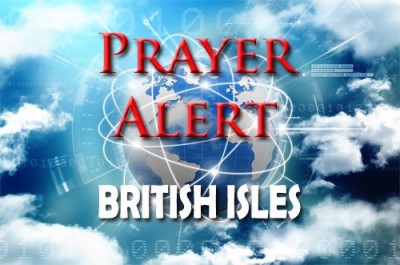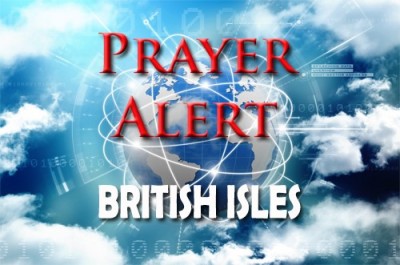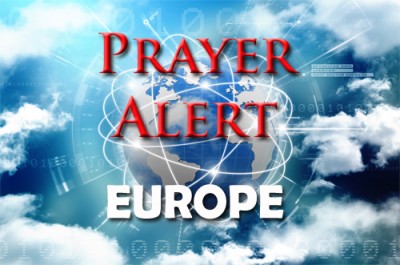Intercessor Focus: Brexit new phase
18 Oct 2019‘Forget the former things; do not dwell on the past. See, I am doing a new thing! Now it springs up; do you not perceive it? I am making a way in the wilderness and streams in the wasteland.’ (Isaiah 43:18-19) With God all things are possible. In Matthew 17 Jesus told His disciples that if they had faith as small as a mustard seed, they could say to the mountain, ‘Move from here to there’, and it will move. Father, we ask you to move the mountains of discussions that will be taking place in the coming days, especially now that a Brexit deal has been agreed, but has to be backed by all 27 EU members and debated in Parliament on 19 October. May everything progress in line with Your purposes and under Your authority.
Abortion on Christian family's disabled daughter
17 Oct 2019Specialists will perform an abortion on a woman from a Christian home who has severe learning disabilities and is twelve weeks pregnant. Mr Justice Williams ruled that the woman's pregnancy could be terminated after analysing the case at the Court of Protection, where judges consider issues relating to people who lack the mental capacity to make decisions. A police investigation is under way to discover how a woman in her twenties, with the mental capacity of a toddler, became pregnant. Was she raped or made pregnant by a male friend with learning disabilities? Police will carry out DNA tests to establish the father’s identity. The woman's foster parents are Christians and churchgoers. Pray for this case to highlight the need for the NHS, social services and trusts to examine, and update where needed, appropriate care packages for safeguarding vulnerable people in their care.
LGBT teaching row continues
17 Oct 2019About 70 schools have experienced resistance from parents on relationships education. The Department of Education has published a document stating that councils could enforce action if pupils are withdrawn from school when parents disagree with teaching material. It also suggests that, if demonstrators are outside school gates, head teachers could liaise with police. Teachers who read the document told of their frustration at not being consulted beforehand. They feel unsupported to tackle a sensitive situation. New relationship education is planned for all primary pupils from September 2020. Meanwhile Maureen Griffith, a Christian school governor, was suspended after questioning LGBT reading material. She became concerned that parents had not been properly consulted about plans for reading lists tying in with LGBTQ+ Pride Month, to be introduced for the next school year. Parents believe that whoever influences what children think, and teaches values to live by, controls the future direction of our society. See
Bishop praises God for Extinction Rebellion
17 Oct 2019The Bishop of Colchester joined climate activists at Trafalgar Square on 13 October for prayer and worship before moving to Scotland Yard to urge police to return equipment confiscated from disabled activists who were prevented from demonstrating after police impounded ramps and wheelchairs. The Bishop praised God for the rebel group, saying, ‘When our very existence is threatened by our insatiable exploitation of this precious earth, we have to speak up and take action. This is a wake-up call to the world. It is prophetic. I thank God for Extinction Rebellion and I pray that their voice may be heard - for all our sakes.’ Meanwhile, Father Martin Newell was arrested when attempting to glue himself to the floor in support of disabled protesters, and 77-year-old Revd Sue Parfitt was arrested for gluing herself to the roof of a tube train at Shadwell station. See
A survey found 3/4 of UK Christians believe in the existence of hell, and 2/3 say their church rarely or never teaches the topic. 15% believed the topic of hell was of little relevance to modern day life. Matt Adcock (a Christian Bible teacher in Leicester), who commissioned the study, said that teaching on hell was out of favour and out of date; people want to believe in heaven and a God who will love you forever. He added, ‘I think it's a harder doctrine to say you know you'll be judged and accountable for everything you've done on earth. Churches are adapting their message to attract people who have a more liberal mindset.’ He said there is a mystery around the concept of hell which makes it more difficult to understand, and suggested that more teaching on the subject was needed.
Nicky Morgan has said the Government will not be requiring visitors to adult websites to upload proof of their age; thus protecting people under 18 from the damaging effects of adult content on the web. She said that the duty of care on companies to improve online safety would instead be delivered through a proposed online harms regulatory regime. CARE said that the Government announcement was a ‘betrayal’ of young people who are better protected offline than online. A survey has found that half of British children aged 11-13 had seen adult content, with some aged 7 or 8 having seen it online. CARE said a poll conducted in 2015 found that proposals to introduce age verification checks were supported by a majority of the public, and there was ‘no logic’ in giving up the scheme.
Record rise in homeless deaths
17 Oct 2019On 27 June we reported that Scotland’s homeless status was up by 3% on the previous year. Four months later another report stated the number of deaths of homeless people in England and Wales had risen by 22% - nearly two a day. The number of deaths related to drug poisoning has risen by 55% since 2017, compared to 16% of the population as a whole. Homeless families living permanently in office blocks, and homelessness among old people soared by 39%. There are an undisclosed number of empty houses in England despite a homelessness crisis. The majority of known deaths (641) were of men. Shelter said, ‘This is a moment to pause and reflect on what matters to us as a society. These tragic deaths are the consequence of a housing system and economy that is failing too many of our fellow citizens.’
Albania: moving forward
17 Oct 2019Albania was once the poorest nation in Europe, but poverty has been cut by more than half and the economy continues to show positive signs of growth. Despite having well-known gangsters, it has made notable steps in combating drugs, weapons and human trafficking. Last year the European Commission said that it had shown enough progress towards implementing the required reforms that accession negotiations can begin. Under Communist rule, no religion was allowed. Now, Islam claims twice as many followers as Christianity. Christian believers enjoy worshipping openly in a country that once restricted religious freedom, although most who claim Christianity are reported to be nominal in their faith. Praise God that children’s ministry is drawing whole families into church and multiple generations are coming to faith. Pray for isolated believers to find safe ways to meet with others, and for believers from Muslim backgrounds to be protected from pressure and attack from friends and family.
